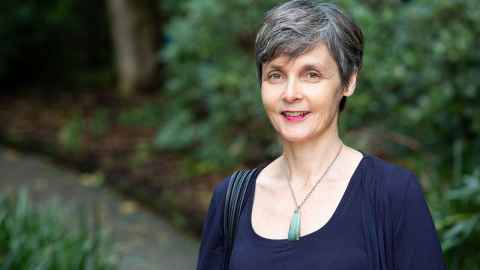Rethinking climate law for future generations
11 October 2024
A new paper explores how international law might evolve to ensure future generations are not left to bear the brunt of today’s environmental inaction.

As climate change intensifies, future generations face even more daunting challenges than we do today. Yet, in a new article, Professor Caroline Foster says international climate law falls short in addressing the needs and interests of those who will inherit the planet.
Her article, published in Transnational Environmental Law, explores how international courts, particularly the International Court of Justice (ICJ), might address the issue of climate change through the lens of future generations.
At the heart of Foster’s argument is the application of the ‘no-harm rule’, a principle of international law that requires countries to prevent, reduce and control the risk of environmental harm to others.
“As the world becomes more interconnected, this no harm obligation becomes even more important,” she says.
Foster suggests this same rule could additionally require due regard for the future generations who will inevitably face the consequences of today’s environmental actions.
She says the concept of due regard is already emerging in international rulings, ensuring that states respect the rights and interests of others.
In her paper, she asks whether the no-harm rule carries an obligation for states to avoid “manifestly excessive adverse impacts”, urging a more proactive approach to long-term climate consequences.
Foster also points to cases such as Navigational Rights (Costa Rica v. Nicaragua), where the ICJ stressed the importance of exercising sovereignty in ways that avoid such disproportionate harm.
The environmental law expert connects her ideas to wider philosophical and cultural frameworks, noting that the principle of due regard for future generations resonates with contemporary moral philosophy and Indigenous perspectives that emphasise environmental stewardship.
“As the world awaits the ICJ’s forthcoming advisory opinion on countries’ obligations regarding climate change, we need to consider our responsibility for the future. More can be done to determine what international law says about putting this responsibility into practice.”
Media contact:
Sophie Boladeras, media adviser
M: 022 4600 388
E: sophie.boladeras@auckland.ac.nz